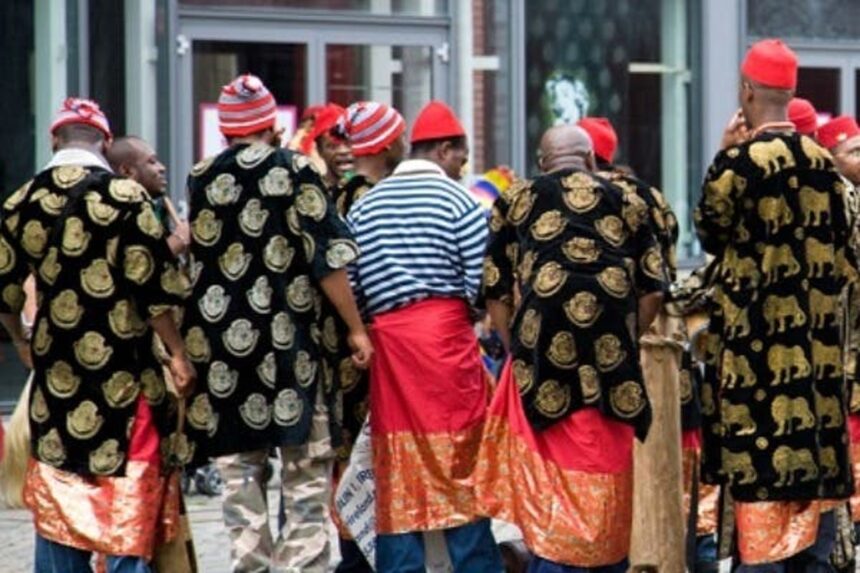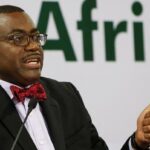People of various walks of life and nativities at the weekend trooped in their thousands to Umuajata Olokoro in Umuahia South, Abia State, for the public presentation of the book titled “Centuries of Igbo Civilisation, Origin, Cosmology & Epistemology Of The Igbo People.”
The 234-page book was written by one of the top Igbo Leaders of Thought (ILOT), Elder Obi Barth Oyibo Thompson, and publicly presented at his expansive and palatial country home, as part of the celebration of his attainment of 80 years of age, which now joins him into the class of octogenarians.
Elder Thompson stated that the book speaks to the calamity that befell our ancestors—the Aboriginal Igbo—upon their tragic encounter with armed Western European invaders who attacked them in their sovereign space and imposed an alien culture on the people.
Elder Thompson directed that copies of the book should be distributed free of charge to members of the public, noting, however, that he could not effectively tell the story in the book in Igbo language despite being born and bred in the Igbo language and culture.
He consequently bemoaned not doing so, saying, “But the story of the book is one that must be told. The book has to be written for the benefit of mankind because time is running out for my generation in the Igbo race; the generation that grew up with grandparents who grew up in pure Aboriginal Igbo society before contact with English, and who (the grandparents) also knew their grandparents—the great, great grandparents of my generation—a generation that lived relatively recently, only 200 years ago.”
He stated that the book, having itself, speaks to the calamity that befell his ancestors—the Aboriginal Igbo—upon their tragic encounter with armed Western European invaders who attacked them in their sovereign space and imposed an alien culture on the people.
Another reason he disclosed the book had to be written “is because the priceless centuries-old history of the Igbo race the ancestors persevered to preserve, despite relentless deliberate efforts to totally delete and erase their story from the annals and memory of humanity—the backbone of our existence as a distinct race on Earth—may be lost forever, [which would] be a catastrophic loss of the knowledge of what it means to be Igbo.”
He exhorted his Igbo kin the world over to always stand on the truth with facts and be supportive of what is legitimate, and not discourage or stop their children and wards’ decisions from pursuing their chosen courses, occupations, professions, or callings in life, submitting that such decisions or desires might be divinely inspired to enable/empower them (children/wards) to positively impact themselves, mankind, society, and the world, asserting, “No power or force in the universe can stop what the divine has designed.”
In the section of the book he captioned, “The Igbo Race: A Case of Arrested and Stymied Development,” the book author stated that before formal European invasion, there existed social order and structures that enabled Igbo civilization to thrive, leading the world in metallurgy, building pyramids, establishing technopolis, and engaging in long-distance trade before Europeans had any such idea.
According to him, European invaders had been attacking Igbo land for centuries through the slave trade, long before Britain was assigned to destroy the rump of it at the 1884–1885 Berlin Conference.
In one paragraph of the book tagged “A Tragic Tale of a People Once the Pride of Humanity,” he similarly wrote: “Forced by the English upon militarily defeating them to abandon their Aboriginal values and spirituality, and upon eventually accepting their defeat, the Igbo unfortunately abandoned the security of their peaceful homeland and followed their English conquerors to relocate and settle in otherwise foreign lands, among peoples with whom the Igbo have NOTHING in common, and no shared past, except colonial history—except being forced to belong to a ramshackle English creation called Nigeria, taking along with them their God-given talents and intelligence.”
According to the author, “this remains the Igbo undoing.”
Looking backward, he further wrote, “The speed with which the Igbo catch up and adapt to any situation and environment, and often thrive despite deliberate obstacles and problems placed in their way—including colonial and neo-colonial treacheries and toxic narratives—is the only prism with which to see what the Igbo would have been, had they been left to their cosmic fate and destiny.”
The celebration featured goodwill messages and merrymaking, which the celebrant (Elder Thompson) announced would last till dawn, including the address in which the community attested to Thompson’s various developmental activities and empowerments, ranging from road construction, education scholarships, among others.










